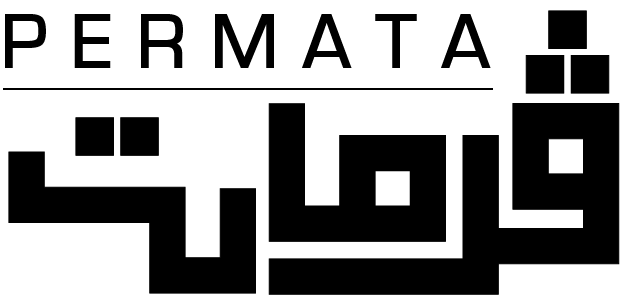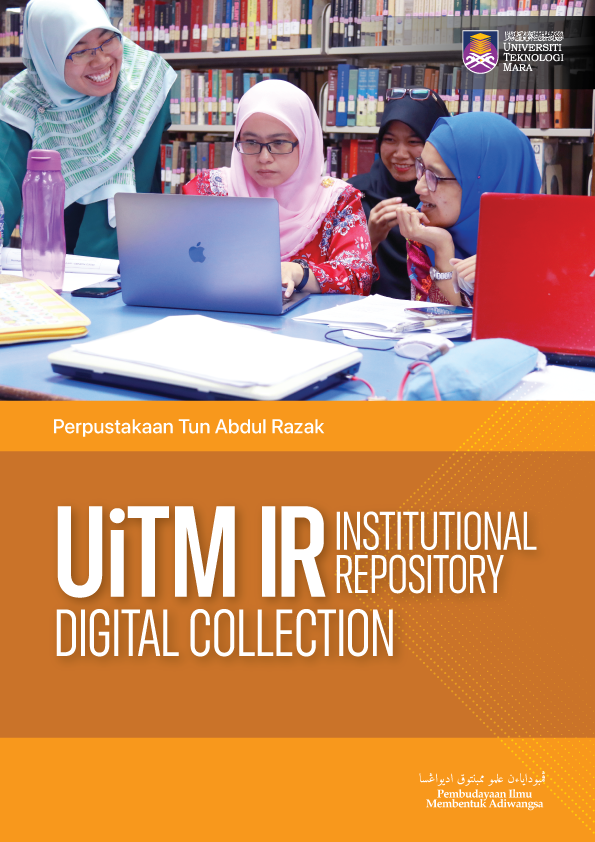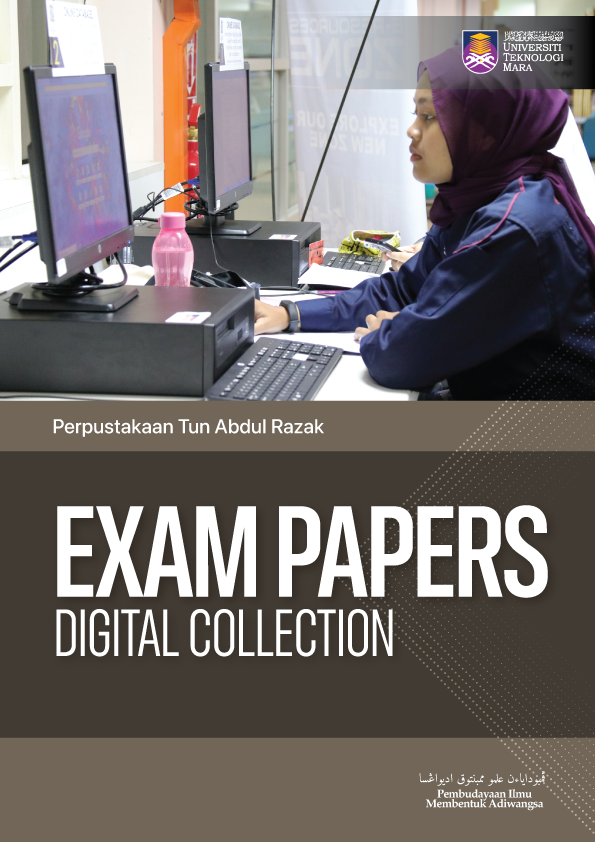#1Enhancing reflective practice in pharmacy education: a pharmacoepidemiology and public health approach / Zakiah Mohd Noordin ... [et al.]
Reflective practice is an integral part of the pharmacy curriculum. It supports development of skills in decision-making, critical thinking, problem-solving, and is important for continuing professional development and ongoing professional practice. At the heart of reflective practice lies the encouragement of learning from both personal experiences and the experiences of others. This strategy not only bridges the gap between academic knowledge and real-world application, but it also encourages communication and collaboration across diverse teams, which are essential components of modern pharmacy practice.
#2Revolutionising pharmacy through machine learning: the progress and perils / Yuslina Zakaria
Machine learning (ML) is transforming pharmacy, enhancing accuracy in drug discovery, personalised medicine, and patient care. ML, a branch of artificial intelligence (AI), uses algorithms such as neural networks, decision trees, and support vector machines to learn from large datasets and make predictions. In pharmaceutical research, ML accelerates the identification of potential drug candidates, improves design optimisation, and increases research efficiency. Additionally, ML in predictive analytics for pharmacy practice shows promising results, highlighting the need for further research and adoption to improve patient care (1).
#3Pharmacy board of Malaysia accreditation visit / Syahida Fathiah Ahmad Kamal
In the realm of higher education, ensuring the quality and standards of academic programs is paramount. This is where accreditation bodies such as the Malaysian Qualifications Agency (MQA) and Pharmacy Board Malaysia (Lembaga Farmasi Malaysia - LFM) play a critical role. An accreditation visit by these bodies is a rigorous process aimed at evaluating and validating the quality of educational programs, ensuring they meet established standards and provide value to students and stakeholders.
#4Enhancing Bachelor of Pharmacy program: Discussion with Pharmacy Stakeholders / Dr Mohd Shahezwan Abd Wahab ... [et al.]
On July 18th, 2023, the Faculty of Pharmacy at UiTM hosted a discussion session with Pharmacy Stakeholders, a ground-breaking initiative aimed at collecting valuable feedback and insights from representatives of various sectors within the pharmacy profession. The purpose of the session was also to evaluate how well the faculty's pharmacy program satisfies the expectations of stakeholders and to identify areas for improvement. Representatives from the community pharmacy, industrial pharmacy, and hospital pharmacy sectors, as well as the president of the Malaysian Pharmacists Society, Mr. Amrahi Buang attended the session. The session provided a forum for stakeholders to share their experiences, concerns, and suggestions regarding UiTM's current pharmacy program. Their firsthand knowledge provided valuable perspectives on the curriculum's strengths and shortcomings, the relevance of course content, and the required skills and competencies for future pharmacy professionals.
#5A visit from the United Kingdom: sharing session on advancements in pharmacy education & experiential learning / Associate Prof. Dr. Mahmathi Karuppannan
On September 6th, our faculty had the privilege of hosting Professor Matthew Boyd from the University of Nottingham (UoN), United Kingdom. Prof. Matthew is the head of the Division of Pharmacy Practice and Policy in the School of Pharmacy, UoN. He is also the school and faculty lead for fitness to practise and the academic lead for experiential learning. SHARING SESSION ON ADVANCEMENTS IN PHARMACY EDUCATION & EXPERIENTIAL LEARNING A Visit from the United Kingdom: Prof. Matt started with an overview of the United Kingdom (UK)'s healthcare system, the National Health Service (NHS). The NHS, founded in 1948, is a publicly funded healthcare system that provides comprehensive, accessible, and cost effective healthcare to all residents of the UK. Prof. Matt emphasised the core principles of the NHS, which include providing healthcare for all citizens based on need, not ability to pay. Prof Matt also shared the current priorities of the NHS. These priorities are dynamic, adapting to the evolving healthcare landscape. They encompass health inequalities improvement, elective recovery, mental health, integrated care, primary care, cancer, and digital transformation.
#6Navigating the path to pharmacy excellence: A warm welcome for first-year students / Dr. Mohd Shahezwan Abd Wahab ... [et al.]
On October 4, 2023, the Office of Academic Affairs, Faculty of Pharmacy, UiTM Puncak Alam, conducted an academic briefing for the 211 first-year students enrolled in the PH240 Bachelor of Pharmacy (Hons.) programme as part of the university's Education 5.0-week initiative. The session aimed to provide new students with essential information about the faculty and the comprehensive Bachelor of Pharmacy curriculum. The session, carefully crafted to meet the freshmen’s needs, will serve as a valuable resource to help them navigate through their academic journey. The students gained insights into the faculty's distinguished reputation, its dedicated faculty members, and the exceptional opportunities it offers to shape their pharmacy career.
#7Factors influencing academic performance of pharmacy students at Universiti Teknologi MARA (UiTM) Selangor Malaysia / Ismail Mohd Shah and Nursyahmina Zamri
Students' academic performance is one of the fundamental concerns as outstanding academic performance can be proof of the intellectuality of those students. The purpose of this study is to assess the correlation of the academic performance of students between student factors, family factors, university infrastructure factors, and faculty factors. This study used a stratified sampling design that was carried out through a questionnaire. The collected data was analyzed by the Social Sciences Statistical Package (SPSS) and the degree of relationship between factors that affect academic performance with the academic performance of students was evaluated by the weighted mean. Three domain factors, lecturer factors with a mean of 4.01, university infrastructure factors (3.91), family factors (3.35), and the three subdomains include learning techniques (3.68), academic interest and motivation (3.32), and student’s attitude (3.05) were found to have a varying impact upon pharmacy student’s and significant influence on their academic achievement as well. This result is primarily important because it can be used by academic administrators and lecturers as a basis to devise and execute an intervention plan aimed at allowing pharmacy students to enhance their academic performance. Students will be more aware of potential factors that may influence their academic performance.
#8Pharmacy Practice Research Methods
Resources: HARDCOPY
Author/Editor: Babar, Zaheer-ud-din
ISBN: 9789811529924
Published Year: 2020
Publisher: -
Call Number: QV20.5 P532 2020
Category: ENGLISH
#9PHARMACY MANAGEMENT
ESSENTIALS FOR ALL PRACTICE SETTINGS
Resources: HARDCOPY
Author/Editor: Zgarrick, David P.
ISBN: 9781260456387; 1260456382
Published Year: 2020
Publisher: -
Call Number: QV737.1 .P532 2020
Category: ENGLISH
#10Pharmacy practice
Resources: HARDCOPY
Author/Editor: Watson, Jennie
ISBN: 9780702074301; 0702074306
Published Year: 2020
Publisher: -
Call Number: QV779 P5361 2020
Category: -
#11Pharmacy and Pharmaceutical Science
Resources: HARDCOPY
Author/Editor: Hanson, Jesse
ISBN: 9781632417879
Published Year: 2019
Publisher: -
Call Number: QV778 P532 2019
Category: ENGLISH
#12Pharmacy QR code / Siti Khairul Niza Sukri ... [et al.]
The objectives of this project is to provide the most efficient way to provide the information of medicine prescribed to the patient. Pharmacy QR Code is implement as each medicine has its own unique identifier which are represent with their own QR code design. Cellular technology and satellite communication had increased communication speeds and made ‘connecting' easier. Pharmacy QR code is a simplest way for the patient to know about the medication taken as they just only need to scan using QR Application from their smartphone and within seconds they can obtain the details. Communication is rapid, travel is fast, movement is easy, action is quick, interaction has speed up and so has life. Things that once took hours to complete, can be done in seconds today. The QR code provide the information very quickly and precisely about the medicine’s detail such as the content, dosage, indications, contraindications, special precaution and adverse reaction. Material Safety Data Sheet (MSDS) that provide information on the potential hazards can be replaced by QR Code and this is a potential value for commercialization as the project can be introduce and implement to a pharmacy and medicine manufacturer. By implementing this project pharmacy QR code, huge resources and cost can be save up as it uses less number of paper to provide information about medicines to patients. This system is cost effective in terms of time, manpower and material usage as it was operated online.
#13PHARMACY
What It Is and How It Works
Resources: HARDCOPY
Author/Editor: Kelly, William N.
ISBN: 9781138038332
Published Year: 2018
Publisher: -
Call Number: QV704 K29p 2018
Category: ENGLISH
#18Pharmacy practice and the law
Resources: HARDCOPY
Author/Editor: Abood, Richard R.
ISBN: 9781284089110
Published Year: 2017
Publisher: -
Call Number: KF2915.P4 A93 2017
Category: -
#19Pharmacy mapping using geofencing / Noor Ezwanie Abdul Hamid
The cosmetics industry has been growing quickly in both developed and developing countries. These days, Malaysian men also tend to see a personal grooming as a necessity. However, some of cosmetic consumers might face difficulty in searching their desired cosmetic products in pharmacy and to locate the closest pharmacy that sell their preferred cosmetic products. Thus, this project proposed to build a prototype to find the nearest pharmacy that sell that cosmetic products. This can be done by using geofencing technique. The aim of this project is to assist the shoppers to identify which the closest pharmacy that offer their desired cosmetic products. In this project, Rapid Application Development (RAD) methodology is used to develop this prototype because it provides faster development, gives high and maintain the quality of software and reduce development cost. Findings for this system, user enable to find their desired cosmetic products at the nearby pharmacy easily. As the significance of this project, it helped the users to save their time searching for their preferred cosmetic products. In addition, it reduced their travelling time and cost as they know already the location of the pharmacy that sell their preferred cosmetic products. Besides, this project helped to reduce their stress because their cosmetic products are easily accessible at the pharmacy. The recommendation in the future is this project should cover other assortment sort of cosmetic products. Moreover, this project should expect to identify the closest pharmacy that offer different domains such as skincare, personal care and healthcare. Lastly, this application should be develop for any other platform in the future.
#20Pharmacy graduates’ chronicle in Malaysia: Balancing CGPA and soft skills / Azyyati Mohd Suhaimi
Liberalisation of Provisionally Registered Pharmacist (PRP) training in Malaysia has recently been extended to the private facilities recognized by the Pharmacy Board Malaysia (PBM). This has increased the number of graduate employment opportunities. Pharmacy graduates are required to undergo an interview with the Public Services Commission of Malaysia (PSC) and are not allowed to work as pharmacists unless they pass the provisional training. Selection of candidates to be called for interview is generally dependent on their Cumulative Grade Point Average (CGPA). Success at the interview, however, is based on their overall performance and not simply on their CGPA. The chances of success at interview are enhanced by their ability to combine their theoretical knowledge learnt at university with soft skills such as good communication and emotional intelligence. This paper outlines the importance of soft skills and offers suggestions as to how Malaysian pharmacy graduates can enhance them.
- 2007 (204 results)
- 2008 (191 results)
- 2005 (190 results)
- 2006 (183 results)
- 2009 (178 results)
- 2010 (168 results)
- 2004 (146 results)
- 2011 (135 results)
- 2012 (134 results)
- 2013 (134 results)
- 2014 (118 results)
- 2002 (114 results)
- - (112 results)
- 2003 (111 results)
- 2001 (72 results)
- 2000 (52 results)
- 1996 (34 results)
- 1998 (34 results)
- 1999 (31 results)
- 1997 (23 results)
- 1995 (19 results)
- 1993 (14 results)
- 1994 (13 results)
- 1991 (11 results)
- 1992 (9 results)
- 1989 (7 results)
- 1986 (6 results)
- 1990 (6 results)
- 1981 (5 results)
- 1988 (4 results)
- 1970 (3 results)
- 1985 (3 results)
- 1968 (2 results)
- 1971 (2 results)
- 1975 (2 results)
- 1977 (2 results)
- 1983 (2 results)
- 1984 (2 results)
- 1987 (2 results)
- 1933 (1 results)
- 1949 (1 results)
- 1959 (1 results)
- 1960 (1 results)
- 1961 (1 results)
- 1965 (1 results)
- 1973 (1 results)
- 1974 (1 results)
- 1978 (1 results)
- 1982 (1 results)
- 200 (1 results)
- Kampus Alor Gajah (2)
- Kampus Arau (13)
- Kampus Bandaraya Melaka (1)
- Kampus Bertam (223)
- Kampus Bukit Besi (2)
- Kampus Dungun (2)
- Kampus Jasin (3)
- Kampus Jengka (12)
- Kampus Kota Bharu (3)
- Kampus Kota Kinabalu (7)
- Kampus Kuala Pilah (13)
- Kampus Machang (6)
- Kampus Mukah (1)
- Kampus Pasir Gudang (1)
- Kampus Permatang Pauh (57)
- Kampus Puncak Alam (596)
- Kampus Samarahan (34)
- Kampus Samarahan 2 (3)
- Kampus Segamat 2 (5)
- Kampus Selayang (88)
- Kampus Seri Iskandar (1)
- Kampus Sungai Buloh (260)
- Kampus Sungai Petani (5)
- Kampus Tawau (1)
- Kampus Teluk Intan (27)
- Perpustakaan Tun Abdul Razak (103)
- PTAR Kejuruteraan (24)
- PTAR Sains Dan Teknologi (118)
- PTAR Undang-undang (31)









